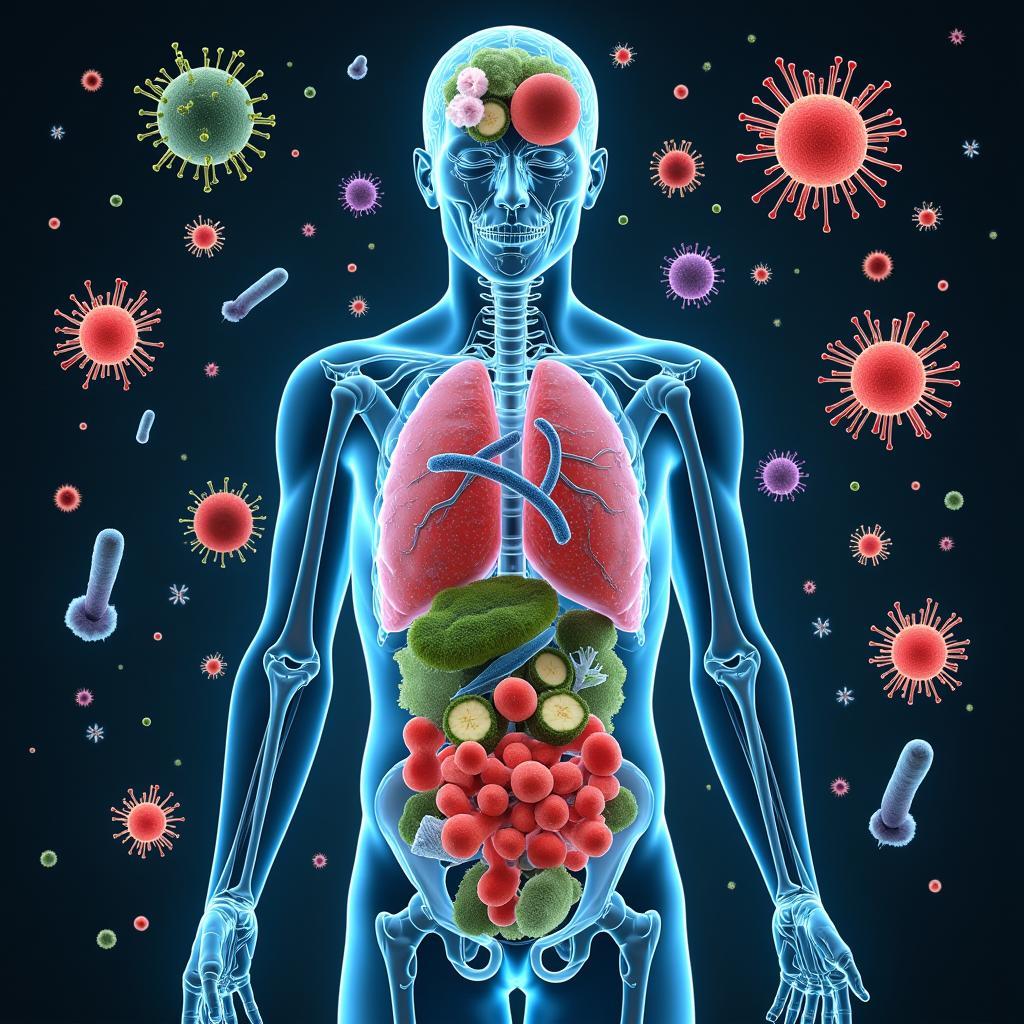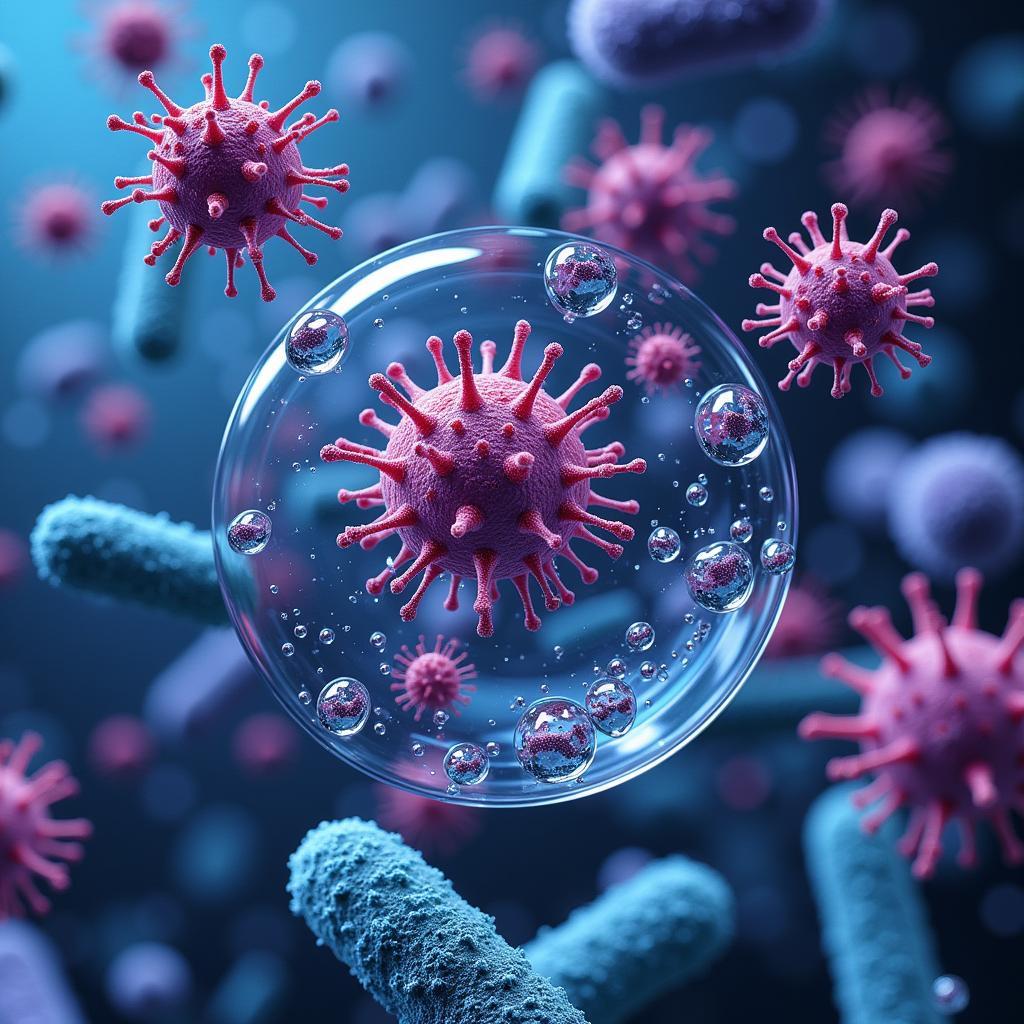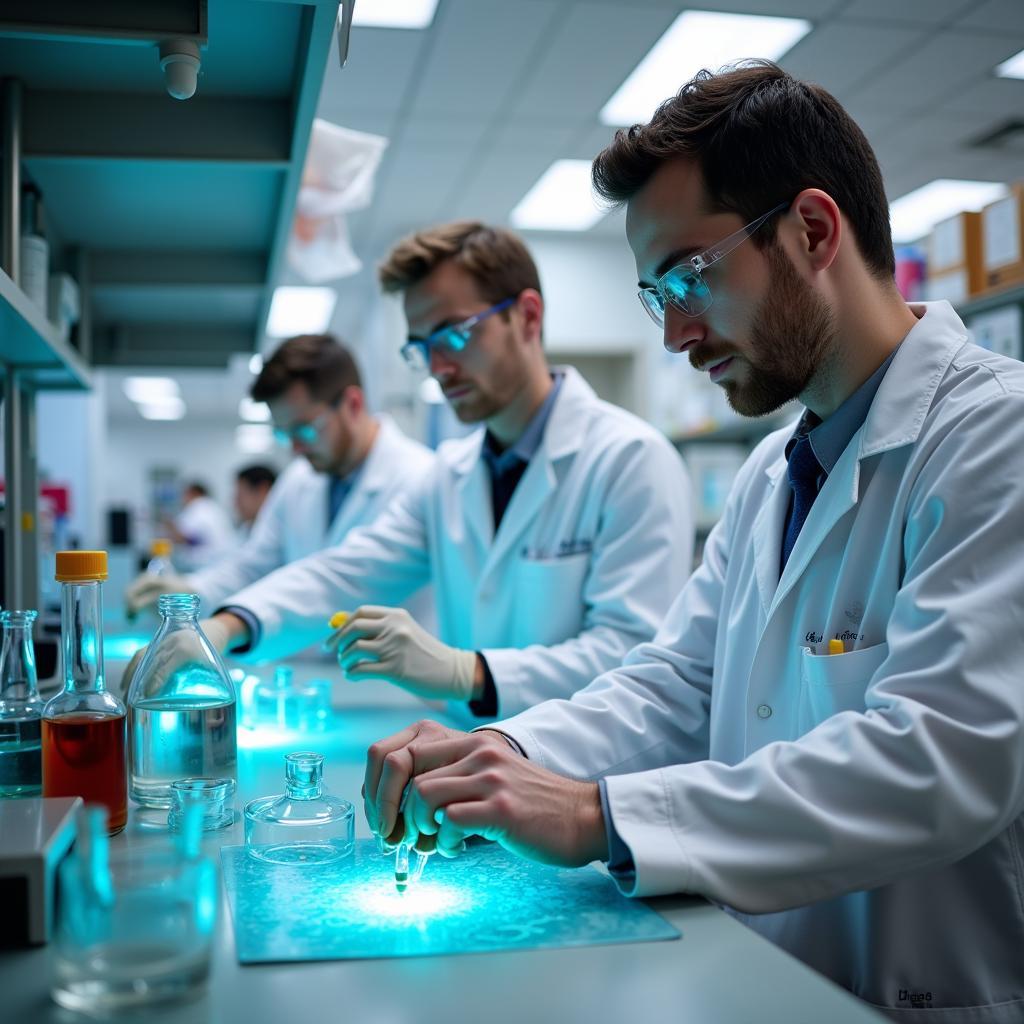From the air we breathe to the food we eat, microbes are an integral part of our world. These microscopic organisms, often overlooked and underestimated, play a crucial role in shaping our society in ways we’re only beginning to understand. But are these Microbes In Society our invisible allies, contributing to our well-being, or are they hidden threats lurking in the shadows, waiting to cause harm?
 Microbes and Human Health
Microbes and Human Health
The Dual Nature of Microbes
The relationship between microbes and society is complex and multifaceted. On the one hand, microbes are essential for life as we know it. They are the invisible workforce behind many crucial processes, such as:
- Nutrient cycling: Microbes break down organic matter, releasing nutrients back into the ecosystem for plants and animals to utilize.
- Food production: From yogurt and cheese to bread and beer, microbes are essential for fermenting and preserving our food.
- Human health: Our bodies are home to trillions of microbes, collectively known as the microbiome. These microbes aid in digestion, synthesize vitamins, and help train our immune systems.
However, this intricate relationship also has its downsides. While many microbes are beneficial, others can be detrimental to human health. These pathogenic microbes are responsible for a wide array of diseases, posing significant challenges to global health.
 Pathogenic Microbes and Disease
Pathogenic Microbes and Disease
Microbes and the Future of Society
As our understanding of microbes deepens, so too does our ability to harness their power for the betterment of society. Scientists are exploring innovative ways to utilize microbes in various fields, including:
- Bioremediation: Microbes can be used to clean up pollutants and toxins from the environment, offering sustainable solutions for a cleaner planet.
- Biotechnology: Microbes are being engineered to produce biofuels, bioplastics, and other valuable products, paving the way for a more sustainable future.
- Medicine: The development of new antibiotics, vaccines, and other treatments relies heavily on our understanding of microbial pathogens.
Navigating the Microbial World: A Call for Balance
The key to a harmonious relationship with microbes lies in understanding their dual nature. It’s crucial to promote the beneficial roles of microbes while mitigating the risks posed by harmful ones. This requires a multifaceted approach, encompassing:
- Responsible antibiotic use: The overuse and misuse of antibiotics contribute to the rise of antibiotic resistance, one of the most pressing global health threats.
- Improved sanitation and hygiene: Access to clean water, sanitation facilities, and proper hygiene practices can significantly reduce the spread of infectious diseases.
- Public education: Raising awareness about the importance of microbes and the risks associated with pathogens is essential for promoting public health.
 Microbiology Research for a Sustainable Future
Microbiology Research for a Sustainable Future
Conclusion
Microbes, though invisible to the naked eye, are powerful agents shaping our world. By understanding their intricate roles in society and embracing a balanced approach, we can harness their potential for good while mitigating the threats they pose. As we delve deeper into the microscopic world, we unveil a universe of possibilities for a healthier, more sustainable future for all.
Don’t hesitate to contact us for assistance.
Phone Number: 02043854663
Email: [email protected]
Address: Khu 34, Bac Giang, 260000, Vietnam
We have a 24/7 customer support team.